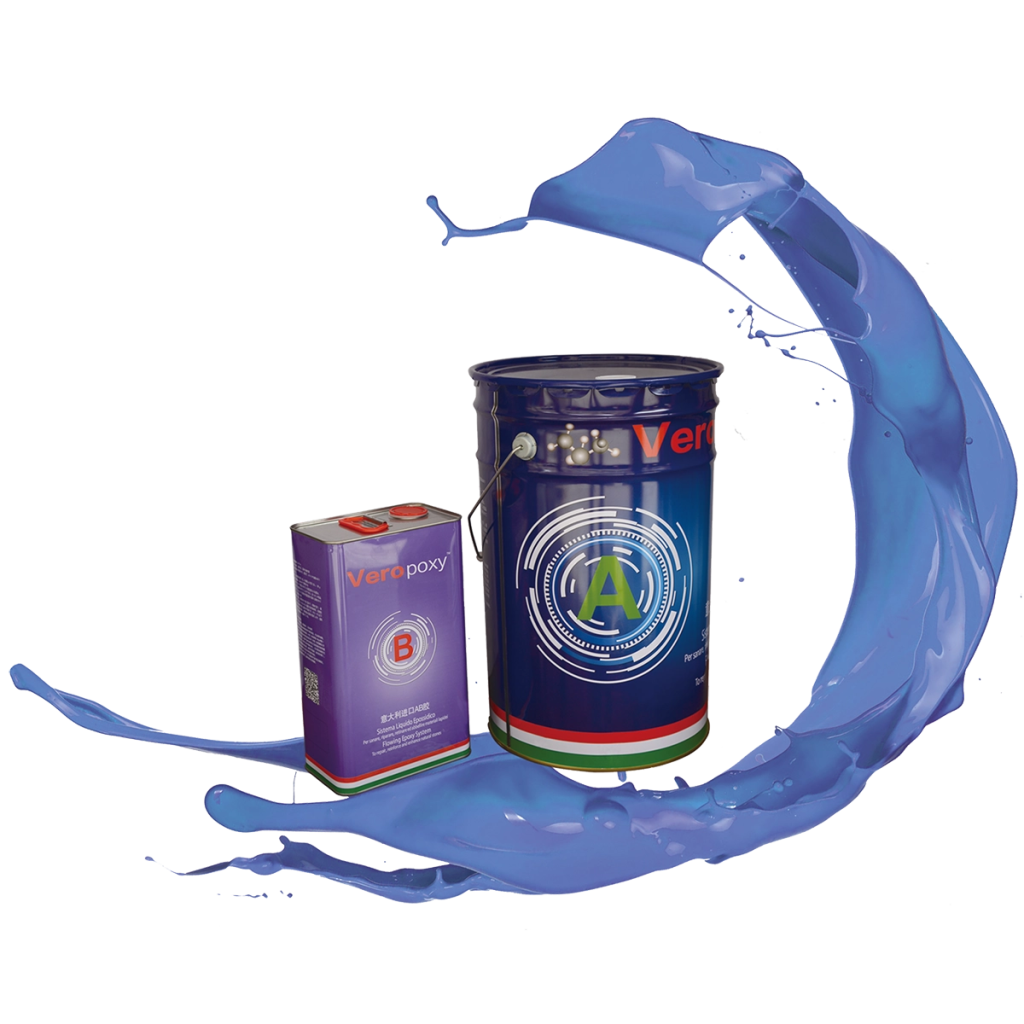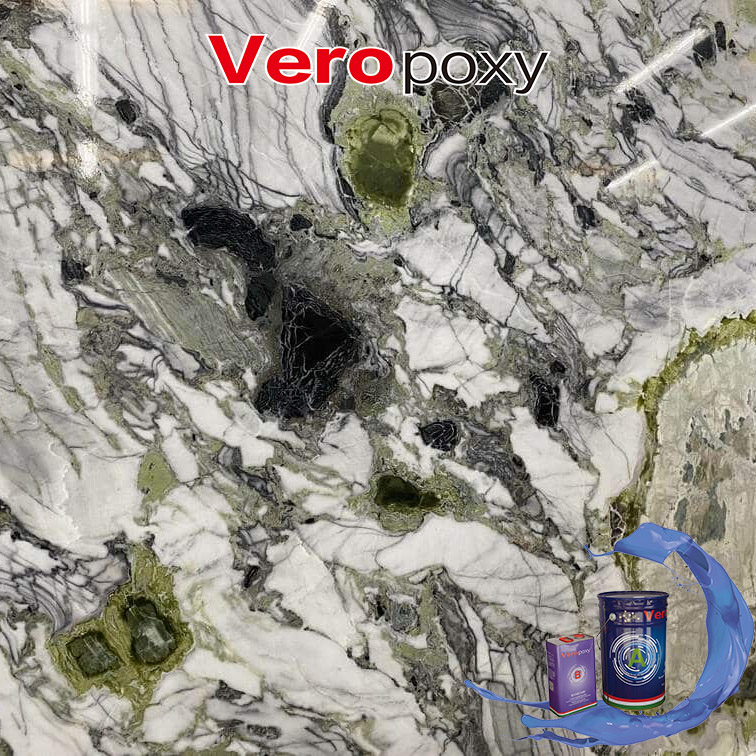Rising environmental issues are driving quick changes in the coatings sector as sustainability and lessening of manufacturing process environmental effect become more important. Among the many elements that have proved essential for this change, has grown to be a mainstay in the creation of ecologically friendly coatings. From daily consumer goods to industrial purposes,has found fresh usage in the field of environmentally aware materials offering creative ideas that strike a mix between performance and environmental impact.
The present developments in epoxy resin utilisation for ecologically friendly coatings will be discussed in this paper. We will investigate how epoxy resin is helping to lower dangerous chemical emissions, increase energy efficiency, and create long-lasting, low-impact coatings fit for contemporary businesses. With an eye on bio-based resins, recyclability, and low-VOC formulations, we will also explore how sustainable practices are altering the epoxy resin sector.

Epoxy Resin
The Coatings Industry’s Use of Epoxy Resin
For many decades, epoxy resin—a flexible material—has been used in coatings. Traditionally utilised in industrial coatings like those for floor, equipment, and metal surfaces, is well-known for its outstanding adhesive qualities, chemical resistance, and durability. But as environmental consciousness grows, the coatings business has been under pressure to lower the environmental effect of conventional coatings that may include dangerous chemicals and high concentrations of volatile organic compounds (VOCs).
Here, has shown to be very helpful. Epoxy resin provides the ideal mix of sustainability and performance when used in ecologically friendly coatings. The newest advances in epoxy resin development focus on increasing the environmental friendliness of this material without sacrificing its outstanding features.
1. Epoxy Resins Based on Bio-Based Materials: An Ecological substitute
Development of bio-based resins is one of the most important developments in the epoxy resin industry nowadays. has long been produced from petroleum-based goods, which helps to deplete fossil fuels and increase the environmental load of the coatings business. Manufacturers have resorted to bio-based substitutes generated from renewable resources such plant oils, starches, and sugars, however, in response to growing demand for sustainable products.
While reducing the dependency on petrochemicals, bio-based epoxy resin has the same great performance qualities as traditional epoxy resin. Along with being more ecologically benign, these bio-based resins have a less carbon footprint all through their lifetime—from manufacture to disposal.
For instance, some bio-based epoxy resins originate from natural oils including castor or soybean oil. These plentiful, renewable oils neither help to deplete natural resources nor contribute to their degradation. A big step towards more sustainable, eco-friendly coatings, bio-based epoxy resin lets producers create premium coatings that satisfy performance criteria as well as environmental needs.
2. Zero-Voc and Low-Voc Epoxy Resins
Especially in indoor surroundings, volatile organic compounds (VOCs) are a major cause of pollution. Applying conventional coatings with high VOC levels causes dangerous compounds to be released into the air, therefore aggravating indoor air pollution and smog development. Applications include paints, coatings, and adhesives, where VOCs may have major environmental and health effects, call specifically attention to this problem.
The coatings sector has been diligently developing epoxy resin compositions with reduced VOC levels in order to solve this. Low-VOC and even zero-VOC resins, which not only lower the environmental effect of the goods but also enhance interior air quality, have resulted from advances in epoxy resin chemistry.
Low-VOC epoxy resins are increasingly used in industrial settings; they are especially helpful in sectors like automotive, construction, and house interiors, where emissions could pose long-term health hazards. Both customers and employees should use these resins as they help to lower the emission of dangerous substances during application and curing.
3. Greater Longevity and Durability
Its outstanding durability is one of its most attractive qualities. With extremely high resistance to wear, abrasion and corrosion, it lasts longer and requires fewer repairs and replacements. It is an ideal choice for eco-friendly coatings due to its inherent resilience, as the need for regular maintenance is minimized, resulting in less waste and the need for more resources.
Since epoxy coatings last longer than other coatings, fewer resources are consumed over time, reducing the overall environmental impact. For example, coatings extend the life of equipment and vehicles for industrial and automotive purposes, reducing the need for regular repairs or painting. Coatings in buildings help surfaces withstand extreme weather, reducing the need for repairs.
This trend towards longer-lasting coatings promotes the concept of sustainable development by reducing resource consumption and waste. It is therefore a major component of eco-friendly industrial applications.
4. Epoxy Resin Coatings: Recyclingability
Another area of ??growing interest is recyclability. While some forms of coatings can be recycled due to ongoing research and technological development, traditional epoxy resins have long been considered difficult to recycle. It is now possible to significantly reduce waste and environmental damage by adopting new recycling technologies and procedures to break down and recycle epoxy materials for other uses.
This trend is critical within the framework of the circular economy, which aims to recycle as much material as possible and reduce the use of fresh raw materials. Recyclability offers the possibility of a closed-loop system for the coatings industry by allowing materials to be reused, helping to save resources and reduce the amount of waste sent to landfill.
5. Green Epoxy Resin for Marble and Stone Surfaces
The world of bonding and repairing natural stone surfaces, especially marble, has been gaining popularity. Historically, adhesives and sealants used on stone surfaces often contained hazardous compounds that were harmful to the environment. But now environmentally friendly alternatives have become available, and the ingredients of these materials are both highly effective and environmentally friendly.
For example, epoxy adhesives are increasingly being used when it comes to stone bonding and marble tabletop repair. While traditional stone adhesives are often toxic and contain volatile materials, epoxy resin formulations that are free of VOCs and other harmful chemicals are revolutionizing this field. These environmentally friendly resins have a low impact on the environment and provide the same excellent adhesion and durability to marble and stone surfaces.
In addition to providing a green alternative to traditional adhesives, it ensures that marble surfaces are strengthened and repaired without sacrificing their natural beauty. The excellent strength ensures long-lasting results, reducing the need for further repairs; and its crystal clear surface ensures that the repair marks are almost unnoticeable.
6. Enhanced Industrial Energy Efficiency
Energy efficiency is another developing trend in the ecologically friendly coatings made of epoxy resin. Energy-efficient uses for epoxy resin coatings abound: thermal insulation, reflective coatings, solar panel protection, etc. Epoxy resin is helping businesses lower their whole environmental impact by offering high-performance coatings that save energy use.
For instance, by providing insulation against heat loss or gain, epoxy resin coatings used in the building of energy-efficient houses may assist control inside temperatures. This lessens the need for heating and air conditioning, therefore conserving energy and producing a smaller carbon imprint. Likewise, epoxy resin coatings used on solar panels improve the efficiency of the panels and help shield the surfaces from damage, therefore increasing the durability and effectiveness of renewable energy systems.

Epoxy Resin for Marble
Epoxy resin has surely excellent future prospects in ecologically friendly coatings. Epoxy resin provides a flexible and environmentally friendly alternative that satisfies the needs of both performance and environmental responsibility as sustainability gains ever more importance in manufacturing and industrial processes. Epoxy resin is positioned to continue at the head of the green revolution in the coatings sector with advances in bio-based resins, low-VOC formulations, recyclability, and better durability.
From the lowering of toxic chemical emissions to the development of long-lasting, recyclable coatings, epoxy resin is guiding the way that businesses all around construct a more sustainable future. Epoxy resin will become increasingly more important in lowering the environmental effect of coatings as new technologies and ideas keep developing, thereby guaranteeing that the materials we now use will be safer and more sustainable for future generations.
Post time: 11 月-16-2024

